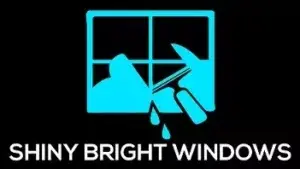Why Is Pure Water Used In Window Cleaning?
Pure water is used in window cleaning to avoid streaks and mineral deposits. It ensures a spotless, clear finish on the glass.
In the world of window cleaning, professionals often opt for pure water due to its unparalleled ability to clean without leaving behind any residues that tap water might. This type of water has had all of its mineral contents removed, which means it absorbs dirt more effectively and dries to a perfect shine.
Its use is integral to achieving that pristine, streak-free look that is highly desired in both commercial and residential settings. Not only does pure water promote a cleaner surface, but it also eliminates the need for harsh chemical cleaners, making it a more environmentally friendly option. Window cleaners favor this method to guarantee top-notch results and customer satisfaction, yielding crystal clear windows that enhance the aesthetic appeal of any property.
The Essence Of Pure Water In Window Cleaning
Clean, streak-free windows are a joy to look at. Pure water plays a crucial role in achieving this. It’s not just water that leaves your windows sparkling but the quality of water used. Let’s dive into the importance of pure water for window cleaning.
The Science Behind Pure Water
Pure water is a scientific marvel for window cleaning. The absence of minerals, contaminants, and other dissolved solids means it pulls dirt right off surfaces.
- Attracts dirt: Pure water acts like a magnet for dirt and grime.
- No residues: It dries without leaving streaks or spots.
- Effective cleaning: Surfaces stay clean longer as there’s nothing left to attract dirt.

Comparing Tap Water With Pure Water
Tap water and pure water can seem similar but have different effects on window cleaning.
Tap Water | Pure Water |
Contains minerals that cause streaks | Mineral-free for a flawless finish |
Leaves residues that attract dirt | No residues, reducing how often cleaning is needed |
Often requires detergents | Cleans effectively without chemicals |
Impurities In Water And Their Impact On Cleaning
Understanding the role of impurities in water is critical when it comes to window cleaning. These impurities can greatly affect the outcome of the cleaning process.
Common Contaminants In Natural Water
Natural water is not pure and contains a variety of contaminants. These include:
- Minerals like calcium and magnesium – cause hard water
- Organic matter – from plants and animals
- Particles – such as dirt and sand
- Chemicals – from pollution or treatment processes
Streaks And Spots: The Residues Left Behind
When water evaporates, impurities don’t. These form:
- Streaks: Lines of minerals left once water dries
- Spots: Hard water minerals that remain as circular deposits
Using pure water without these impurities, therefore, results in a cleaner and more transparent window surface.
The Process Of Producing Pure Water
When we talk about window cleaning, pure water matters. Dirt and minerals cling to windows, distorting the view and causing streaks. Pure water provides a spotless finish without the need for detergents. So, how is this clean elixir made?
Filtration Techniques
Filtration is the first step in purifying water for cleaning windows. Here are the techniques:
- Mechanical Filtration: This catches large particles in a filter.
- Carbon Filtration: It removes chemicals like chlorine.
- Reverse Osmosis: Fine filters and pressure clean the water further.
The Role Of Deionization
Deionization takes filtration a step further. It involves passing water:
- Through ion-exchange resins.
- These resins grab hold of any leftover minerals.
Mineral | Method Removed |
Calcium | Ion exchange |
Sodium | Ion exchange |
The result? Crystal-clear water that leaves windows shining without marks.
Benefits Of Using Pure Water For Windows
Benefits of Using Pure Water for Windows shine bright when we talk about effective and efficient cleaning. Pure water, free from minerals and contaminants, offers several advantages for window cleaning. Let’s dive into the reasons why professionals often prefer pure water for sparkling results.
Longer Lasting Cleanliness
Pure water leaves windows cleaner for a longer period. Why? It’s simply because it contains no dissolved solids. After evaporation, no streaks or marks remain. Your windows stay clear and streak-free, reducing the need for frequent cleaning.
Here’s the deal:
- No residues: Regular tap water may leave deposits; pure water doesn’t.
- Spotless drying: Windows dry without spots, increasing visibility and aesthetic appeal.
Safety and Environmental Considerations
Safety And Environmental Considerations
Using pure water considers both worker safety and environmental impact. Cleaning at heights involves risks. Pure water systems often allow cleaning from the ground, reducing the risk of falls. This method is great for everyone’s safety.
And that’s not all:
- Chemical-free: Pure water cleaning eliminates the need for harmful chemicals, protecting the environment.
- Eco-friendly method: It supports green cleaning initiatives and promotes a healthier ecosystem.
Pure Water Window Cleaning In Practice
When talking about window cleaning, pure water plays a key role. Pure water window cleaning offers a sparkle without chemicals or residue. Let’s explore how professionals use it to achieve those spotless results.
Tools Of The Trade
The right tools make all the difference. Here’s what the pros use:
- Water-fed poles: Extendable for high reach
- Brush heads: Gently agitate grime
- Filters: Remove impurities from water
- Hoses and pumps: Deliver pure water up the pole
Techniques For Streak-free Results
Achieving streak-free windows requires skill. Here are some techniques:
- Scrubbing: Brush heads clean the glass.
- Rinsing: Wash away dirt with pure water.
- Drying: Let the pure water evaporate, leaving no marks.
Step | Action | Result |
1 | Use filtered water | Cleaner windows |
2 | Apply with technique | Streak-free shine |
Beyond The Glass: Other Applications Of Pure Water
Beyond the Glass: Other Applications of Pure Water doesn’t just signify streak-free windows. It’s a versatile cleaning agent across multiple industries, boasting efficiency and eco-friendliness. Pure water, devoid of minerals and impurities, enhances cleaning processes by leaving surfaces without residues. Let’s explore how pure water serves beyond sparkling windows.
Cleaning Solar Panels
Solar panel efficiency hinges on their cleanliness. Dust and grime can block sunlight, undermining solar panel performance. Pure water offers a residue-free solution, maintaining optimum energy absorption. It ensures solar panels operate at peak levels, contributing to sustainable energy goals.
Automotive Industry Uses
Pure water in the automotive industry ensures vehicles aren’t just clean – they shine. It’s used for washing cars, providing a spotless finish by preventing water spots. In manufacturing, it aids in creating perfect paint jobs and cleaning intricate parts, showcasing precision engineering.
The applications of pure water continue to impress beyond these areas:
- Electronics manufacturing for spotless circuit boards.
- Pharmaceutical production for contamination-free processes.
- Scientific research where variable-free results matter.
Each use case capitalizes on pure water’s ability to clean without leaving anything behind.
Frequently Asked Questions For Why Is Pure Water Used In Window Cleaning?
Pure water is void of minerals and contaminants, which prevents streaks and residue on windows after cleaning. It provides a spot-free finish as the water evaporates without leaving any marks behind, resulting in clearer, cleaner windows.
Using pure water in window cleaning reduces the need for chemical detergents, making the process more eco-friendly. It also enhances the longevity of the clean by not depositing minerals that attract dirt, keeping windows cleaner for longer.
Pure water absorbs dirt more effectively because it is free from impurities. This characteristic allows for a more thorough cleaning, as the water actively seeks out and absorbs the dirt from the windows, leaving a pristine surface.
Tap water generally contains minerals that can leave deposits on windows. Unlike pure water, it can result in streaky windows and may require additional cleaning agents to achieve similar results to those of pure water cleaning.
Conclusion
Wrapping up, pure water stands as the ultimate choice for window cleaning due to its impurity-free nature, which ensures a streak-free shine. Embracing this method not only enhances the clarity of your windows but also prolongs their lifespan. For spotless and clear results, the use of pure water is indeed non-negotiable.
Remember, crystal-clear windows are just pure water away!
Our Latest Articles
Read Now
Guide to Professional Window Cleaning in Dublin
Guide to Professional Window Cleaning in Dublin Welcome to Shiny Bright Windows, your trusted partner…
Who Is The Best Window Cleaning Company in Dublin?
Who Is The Best Window Cleaning Company in Dublin? Shiny Bright Windows is the best…
Best Practices for Power Washing Driveways in Dublin
Best Practices for Power Washing Driveways in Dublin Power washing driveways is an effective way…

